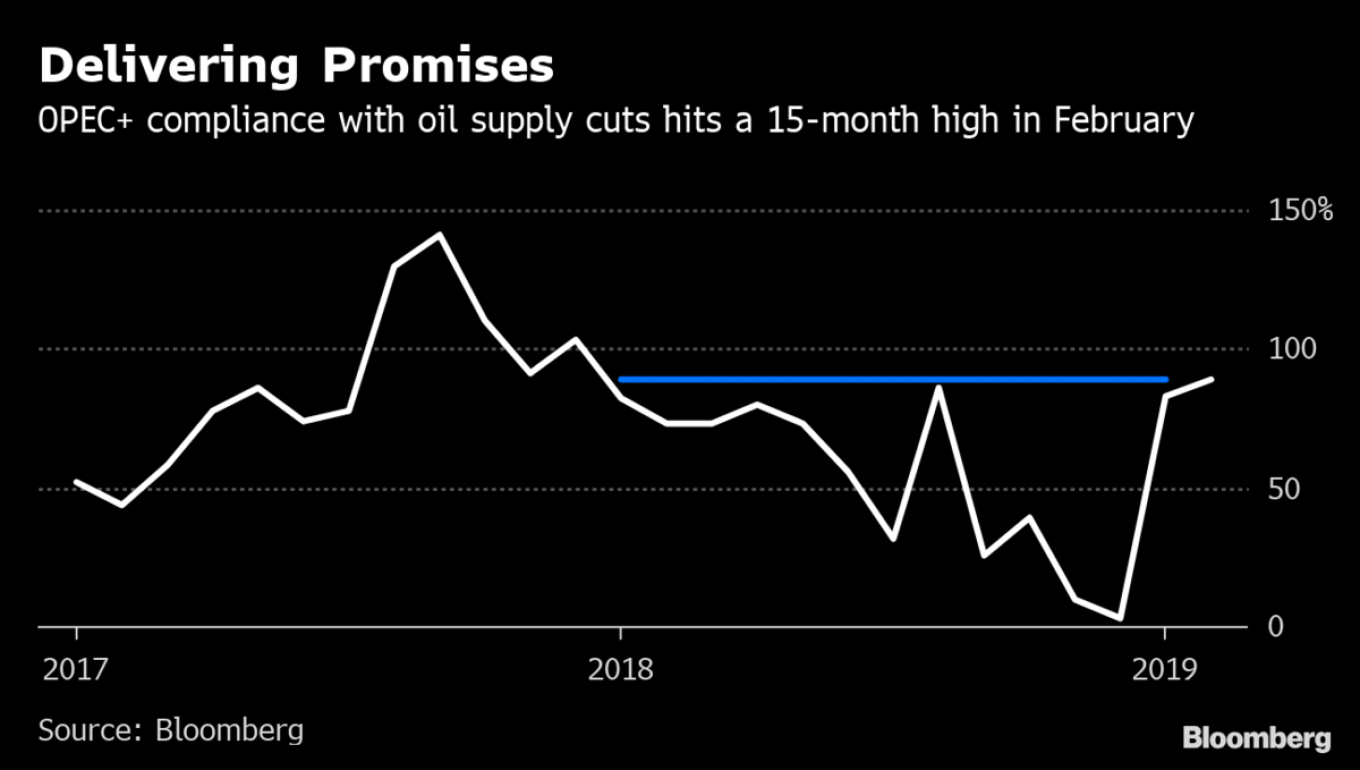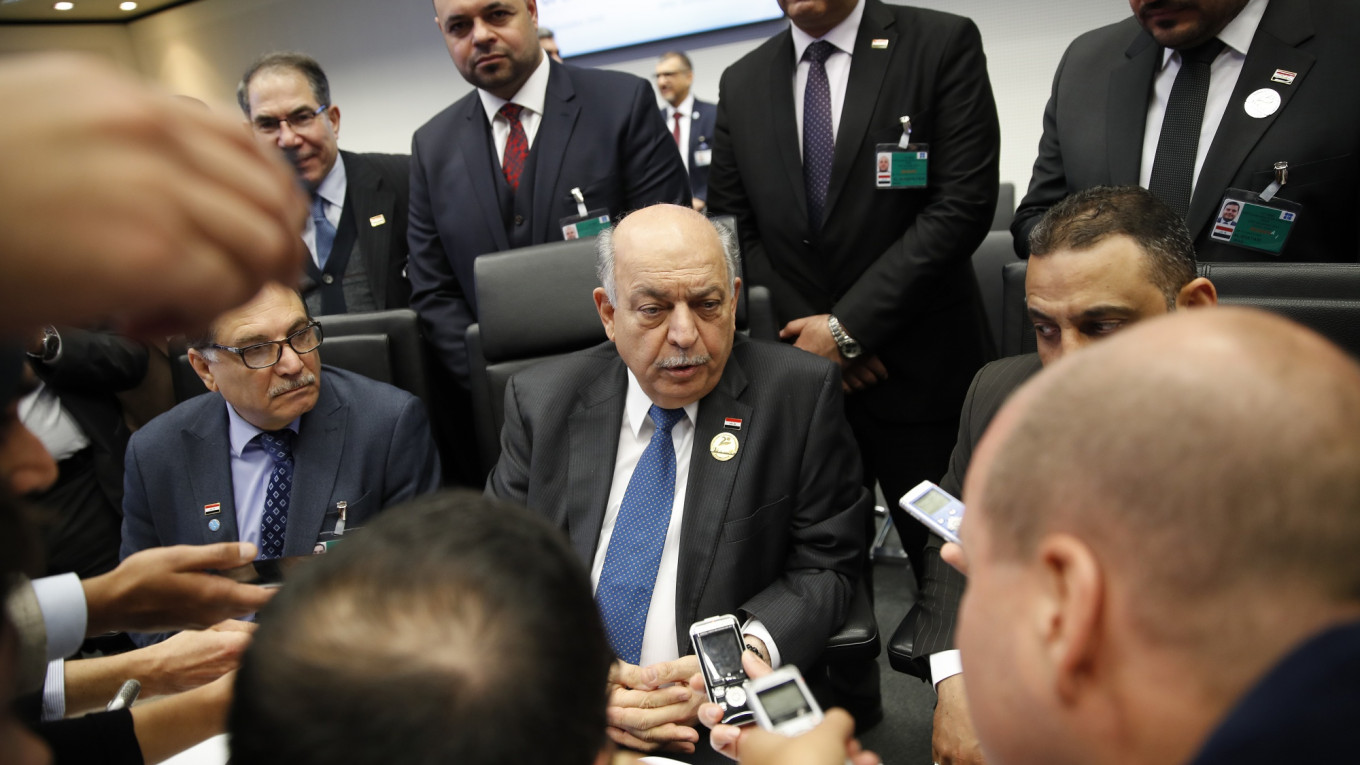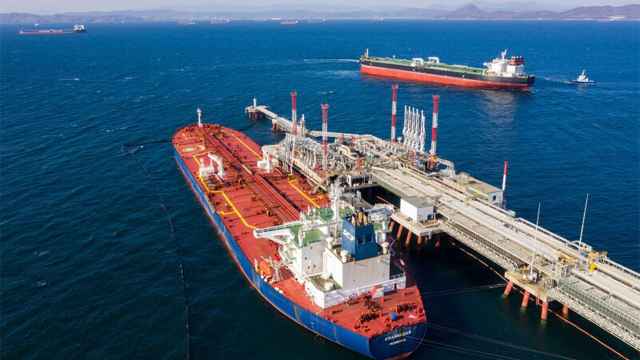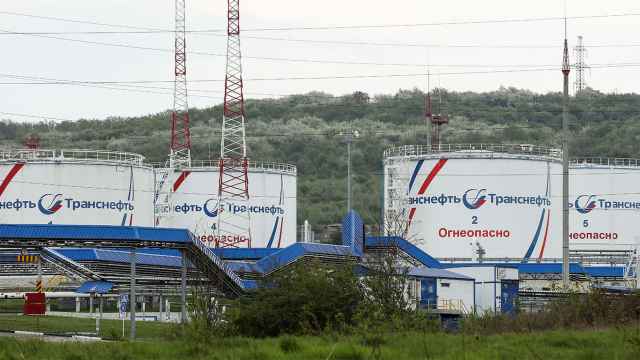Saudi Arabia led fellow members of the OPEC+ coalition to reaffirm their commitment to output cuts, but conceded they should defer until June the decision on whether to extend the curbs.
A committee of the most influential members in the 24-nation alliance, which includes Russia, Iraq and the United Arab Emirates, agreed to go beyond their pledged supply curbs in the coming months. They also recommended canceling a planned April meeting, saying it would be too soon to determine whether the cuts should continue into the second half.
The change in timing, which still needs to be agreed by the wider coalition, reflects what the committee described as “ critical uncertainties” in the oil market, with U.S. sanctions threatening to remove significant supplies from Iran and Venezuela. It’s also the latest sign that Russia, not Saudi Arabia, is setting the agenda for a group that controls more than half of global crude production.
When OPEC and its allies agreed their production cuts in December, Saudi Energy Minister Khalid Al-Falih was initially in favor of a decision to extend them into the second half of 2019 at the planned April meeting. Speaking before talks in Baku, Azerbaijan on Monday, he acknowledged that “April will be premature to make any decisions.”

Russia and Iraq, the pact’s two other major producers, had pushed back against committing to rolling over the OPEC+ cuts agreement so soon. Russian Energy Minister Alexander Novak said on Sunday that uncertainties arising from production in Venezuela and Iran make it difficult for the coalition to determine its next step before May or June.
New members
The Saudi minister spoke ahead of a meeting in Azerbaijan’s capital of the Joint Ministerial Monitoring Committee, which oversees the production cuts. It was formed when the Organization of Petroleum Exporting Countries first formed its alliance with non-members in late 2016, initially consisting of Saudi Arabia, Algeria, Kuwait, Venezuela, Russia and Oman.
They agreed on Monday to add Iraq, Kazakhstan, Nigeria and the United Arab Emirates to the committee, while Oman gave up its place.
The group’s cuts have helped engineer a 25 percent recovery in Brent crude this year. Prices were little changed near $67 a barrel on Monday, well below the levels that most of the producers need to cover government spending.
Market fundamentals have “significantly improved but more needs to be done,” Al-Falih said on Monday. “We’re seeing inventories building, and even if they stop building we still have a long way to go” to bring the market back into balance.
OPEC has faced pressure from U.S. President Donald Trump to “relax” its stance on curbing supply, as severe strains on output from Iran and Venezuela threaten to trigger a shortage.
Al-Falih said the crises haven’t changed his view on the need to continue output restraints, as losses in both those countries haven’t been severe enough to prevent a renewed accumulation of oil inventories. The oil market is getting tighter, but not enough to reverse the cuts, he said.
If the slump in Iranian and Venezuelan supplies intensifies, OPEC is prepared to respond as it has in the past, Al-Falih said.
Producers are conforming well with output cuts they agreed to make starting in January, and their compliance is improving and will easily exceed 100 percent in March, Al-Falih said. Saudi Arabia will pump about 9.8 million barrels a day in March and April and export less than 7 million barrels daily in both months, he said. The kingdom has a production target of 10.3 million barrels a day.
“We agreed today we need to keep monitoring the situation and by May or June to discuss decisions for the second half of the year,” Novak said on Sunday. Russia has trimmed its output by an average of 140,000 to 150,000 barrels a day in March compared with October, the reference month for Russia’s cuts, Interfax reported.
“Currently, the price is acceptable to all the parties, both to consumers and producers, and you can see that the level of volatility is extremely low,” Novak said in an interview with Bloomberg. “We may be balanced today but we don’t know what’s going to happen.”
Iraq is doing its best to adhere to its pledged reduction and will pump less in March than in either January or February, Thamir Ghadhban, the Iraqi minister, said. While welcoming the price boost from the current accord, he said he hopes that producers continue to put into effect the cuts they’ve promised.
“We should continue till June and then decide, but we are continuously observing and analyzing the market,” Ghadhban said.
A Message from The Moscow Times:
Dear readers,
We are facing unprecedented challenges. Russia's Prosecutor General's Office has designated The Moscow Times as an "undesirable" organization, criminalizing our work and putting our staff at risk of prosecution. This follows our earlier unjust labeling as a "foreign agent."
These actions are direct attempts to silence independent journalism in Russia. The authorities claim our work "discredits the decisions of the Russian leadership." We see things differently: we strive to provide accurate, unbiased reporting on Russia.
We, the journalists of The Moscow Times, refuse to be silenced. But to continue our work, we need your help.
Your support, no matter how small, makes a world of difference. If you can, please support us monthly starting from just $2. It's quick to set up, and every contribution makes a significant impact.
By supporting The Moscow Times, you're defending open, independent journalism in the face of repression. Thank you for standing with us.
Remind me later.






